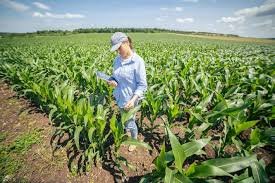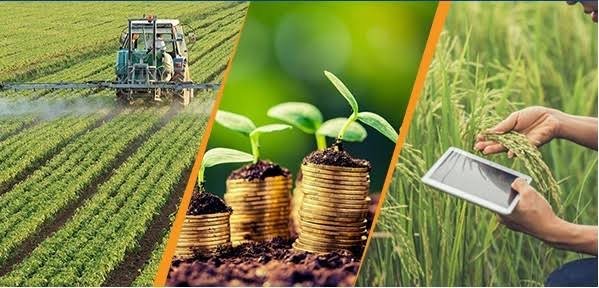There is an undeniable relationship between agriculture and water, water is essential for every step of farming, from sowing the seed to harvesting the crops. Today, water scarcity has become a significant issue due to climate change, increase in population, and water table depletion. In this regard, the significance of water management in agriculture has heightened than ever. It is not just about water conservation, it concerns the efficiency and sustainability of farming.
The Importance of Water In Farming

Nothing can grow without water. Water is essential for plants to take nutrients, in addition to being essential for the process of photosynthesis. The effectiveness of an irrigation system can affect the development and yield of crops. Too much water leads to over-saturation of the soil, while if not enough water is used, crops begin to dry. The keyword is to properly manage and utilize water — therein lies the secret to success in farming. Water Management in agriculture: Sustainability For Future Agriculture
Current Challenges in Agricultural Water Use

The major challenge today is groundwater elimination. Farmers have consumed so much groundwater that levels are excessively low in many areas through borewells and tube wells. On the flip side, risk is also increasing due to flood and drought. Imbalance is not only threatening production but long-term viability. Crop pattern is another important issue; for example, excessive paddy cultivation in Punjab and Haryana further depletes groundwater.
Techniques of Water Management in Agriculture

Water management means the most efficient use of water, with less waste and more output. Traditional irrigation such as flooding irrigation does not apply today as it wastes a lot of water. Modern methods utilize drip irrigation and sprinkler irrigation. In drip irrigation, water is delivered directly to the roots of the plants, therefore evaporative losses are minimized and every drop is utilized. Sprinkler irrigation also limits the supply into the field and controls are advantageous for uneven fields.
Technology’s Contribution to More Efficient Water Utilization

In today’s world, technology has simplified water management. Farmers utilize sensors and IoT devices to measure soil moisture levels and irrigate. Smart irrigation systems can utilize a mobile application for monitoring. Fields can be analyzed for their water requirements using drones and satellite imagery. Overall, technology helps us only use water where it is necessary, simultaneously reducing water waste.
Traditional Practices and Their Usefulness
Traditional water conservation practices are still very helpful in some parts of India. Similar to Rajasthan, where step wells and tanks were the rainwater harvesting, South India made use of a tank irrigation method. All of these practices can become more effective by merging with today’s modern day water management resources. Practices like rainwater harvesting and watershed management will ultimately save farmers money in the long term.
Influences on Crop Production and Farmers’ Income
Efficient water management influences crop production. When crops receive sufficient water, they develop well and subsequently production rises. If production increases, farmers’ income also increases. Additionally, smart water use eliminates fertilizer and pesticide application requirements, which leads us towards a cost-reduction program. Hence, efficient water management is environmentally sound, with added value of being financially sound.
The Way Forward for Sustainable Farming

Going forward, good water use will be increasingly important for sustainable farming. With climate change and erratic monsoons that affect farming, farmers must adopt more complex irrigation technologies. This will require investment from the government and private sectors. Awareness campaigns, subsidies, and training will help move farmers towards water conservation techniques. Poor water management, if practiced, is a long-term move to achieve food security and farming.
Conclusion
It is now a necessity to manage water in agriculture. Water management is no longer a way to save water, it is now the foundation of sustainable agriculture. A combination of efficient irrigation, technology, and old ways, will determine if a farmer will have success moving forward. Every farmer will finallyWater Management in agriculture: Sustainability For Future nderstand that every water is precious, and if it is done correctly, agriculture and food security will continue to be sustainable.





Leave a Reply